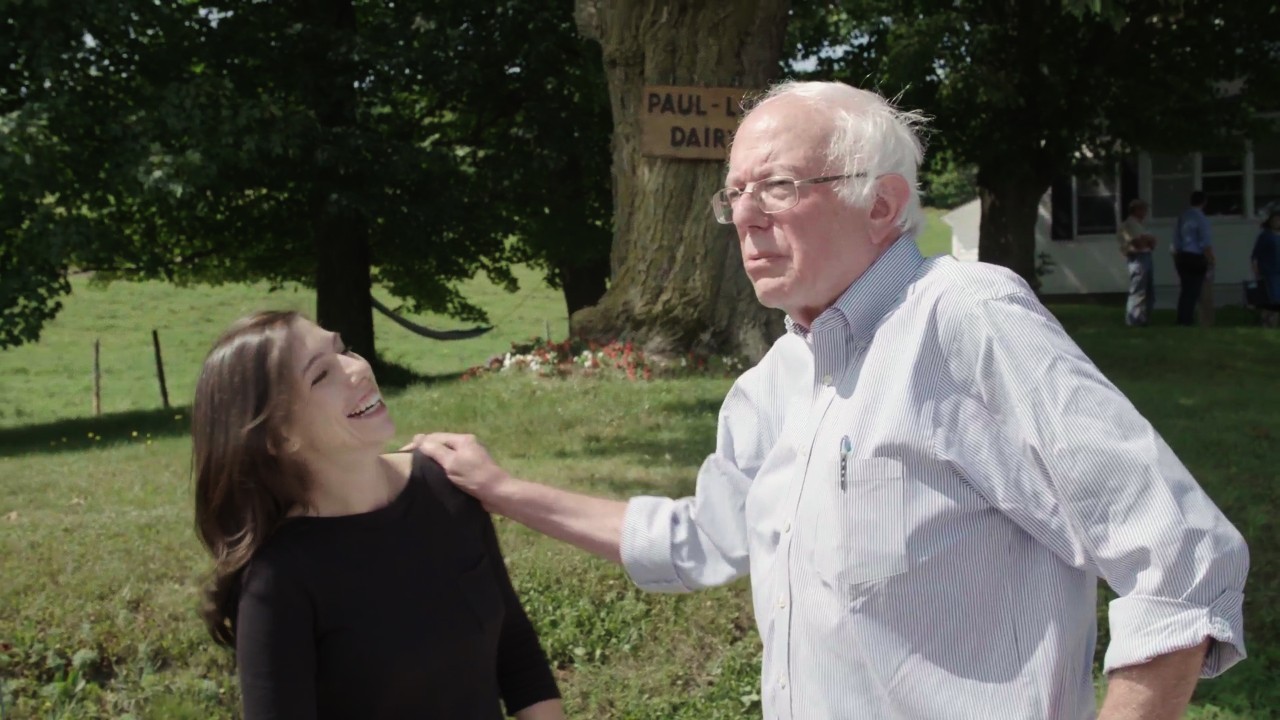SIOUX CITY, Iowa –– Carl Petersen grew up on the Cheyenne River Indian Reservation in South Dakota, and when he started the sixth grade, he had 89 other classmates. By the time he graduated, he had only 58.He’s now 21 and getting ready to start his senior year of college –– and he estimates that only five or six of his former classmates will also be graduating from college next spring.“Education is definitely one of the biggest issues for me,” Petersen says of the 2020 presidential election, pushing a pair of taped-up glasses up his nose. “You know, it has been really hard to see people who had so much going for them, especially in their intelligence, and their compassion, be derailed.”At a presidential candidate forum in Sioux City this week –– hosted by a Native American rights group and dedicated to issues facing indigenous communities –– first-time Native American voters consistently told VICE News that education reform was one of their top concerns heading into the polling booth.READ: Elizabeth Warren asked Native American leaders for forgiveness. Here's how that went.And when 2020 Democrats made their pitch, education and college accessibility was on their minds.The issue is a fraught one for Native Americans who live in tribal communities, and who disproportionately face barriers to education. Native Americans have the lowest aggregate high school graduation rate, with only about 72 percent of high schoolers earning a diploma, a rate that’s 13 percent lower than the national average. And only 13 percent of Native Americans go on to receive a college degree.That’s due to a number of factors, including uniquely high levels of childhood poverty and a lower life expectancy than the average American.As one of only 30 Native American students at his school, Dakota State University, Petersen knows he’s an outlier in his community.READ: Harry Reid: "Of course" Medicare for All and decriminalizing illegal border crossings are a bad ideaHe’s also $40,000 in debt. And that’s why he loves Vermont Sen. Bernie Sanders, who has proposed completely eliminating the student debt of every single college graduate in the country, as well as eliminating the tuition and fees at public universities and community colleges.And at the candidate forum in Sioux City, Sanders was the only candidate to specifically call for both “cancelling all student debt in America” and making public universities free –– to which he received thunderous applause from a rapt audience.That’s despite an early appearance by Elizabeth Warren, the Massachusetts senator who has eaten into Sanders’ lead in national polls. Warren’s student loan forgiveness plan is more measured, offering $50,000 in loan forgiveness for borrowers who make less than $100,000 annually, with people who make up to $250,000 eligible for slightly less relief.Petersen says he likes Sanders’ plan because across-the-board forgiveness “cuts down on bureaucracy, which is something we see a lot of in Indian Country,” he says. “Deciding who gets help increases the cost of providing that help. And so just providing it for everybody might be the best way there.” (Regarding Warren’s college debt plan, Petersen says it’s “almost as good.”)READ: These 2020 Democrats are basically running 'zombie' campaigns right nowRaelee Fourkiller, a 19-year-old rising sophomore at Brown University, says that a lot of the people she goes to school with are “interested in education reform in the sense of free tuition.”But she also wants candidates to focus on issues that are particular to Native American students coming up through public and tribal schools.“Are any of these candidates looking at college access programs? Are any of them supporting these, or putting more in place?” she asks. “Especially in reservations or in tribal communities, where a lot of high school students are going straight into the workforce, or going into college and dropping out.”The candidates, as they stand, haven’t satisfied her on this front, she says.Other candidates at the forum spent more time focusing on K-12 education. Sen. Kamala Harris (D-Calif.) on Tuesday suggested altering public school curricula to emphasize Native American history. Sen. Amy Klobuchar (D-Minn.), who has said she doesn’t believe free universal college is feasible, spoke at length about improving the crumbling infrastructure of many tribal schools.But Mia Sam, a 16-year-old from central Minnesota, says she didn’t really buy any talk from politicians about improving the quality of schools; she wants candidates to go see them before making any judgment calls.“I thought that they should explore more of the tribal schools, and get more of a full understanding of what it’s like in a tribal school. And ask the students and teachers and people in the community about the problems in that school, and how they could be resolved.” If she could vote, Sam said, she’d cast her ballot for Elizabeth Warren.Alayah Frazier, a 17-year-old member of the Winnebago tribe in Nebraska, will turn 18 before the general election next year –– and she wants a candidate who will acknowledge that American history started before colonists set foot on the Americas.Frazier, who has lobbied her state’s board of education to modify its social studies programs, is waiting to make a call on who she’ll vote for. “I like what I’ve heard so far,” she says, “but I want to wait until the general election to decide.” Cover: Sen. Bernie Sanders (I-Vt.) addresses a Native American presidential forum in Sioux City, Iowa Aug. 21, 2019. (Photo: Morgan Baskin/VICE News)
Cover: Sen. Bernie Sanders (I-Vt.) addresses a Native American presidential forum in Sioux City, Iowa Aug. 21, 2019. (Photo: Morgan Baskin/VICE News)
Advertisement
Advertisement
Advertisement
